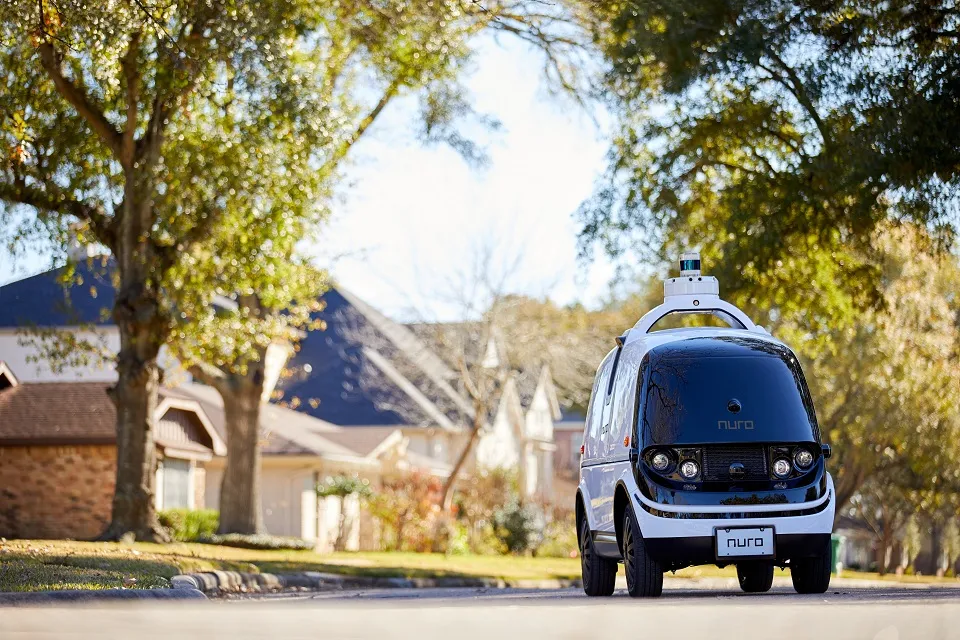
Built to carry packages – rather than people - R2 will begin public road testing in advance of its first deliveries to customers’ homes in Houston, Texas, “in the next few weeks”, Nuro co-founder Dave Ferguson says.
Nuro has received an exemption to operate, but Ferguson is calling on legislators to move with the times.
“Exemptions are a temporary fix for an industry that’s reimagining what it means to drive,” he says. “Moving forward, we must modernise the existing regulations that never envisioned a vehicle without a driver or occupants.”
R2 is Nuro’s second-generation self-driving vehicle and is “custom-designed…to enrich local commerce with last-mile delivery of consumer products, groceries, and hot food from local stores and restaurants”, according to Ferguson.
Narrower than a conventional passenger car, R2 taps into consumers’ current vogue for on-demand deliveries to their homes – which customers retrieve from R2’s compartments using a private code.
However, there is already disquiet about the rise of autonomous vehicles (AVs) leading to an increase in congestion. Some transport experts have spoken of a potential nightmare scenario in which vehicle occupancy is zero – because AVs are driving round without passengers.
But for Nuro, this is its unique selling point: “A self-driving vehicle, but not just a driverless vehicle — a passenger-less vehicle,” says Ferguson. “A zero-occupant vehicle.”
He adds that R2 has the potential to be safer than passenger vehicles: “More nimble, narrower, and better able to prioritise the well-being of other road users.”
The company says R2’s sensor array has been updated, with two-thirds more compartment space added “without increasing vehicle width”.
Temperature control will help keep food fresh and battery life has been boosted, “enabling all day operation”.








